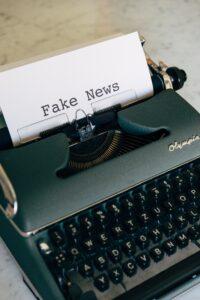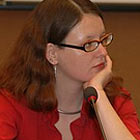Islam and Europe: clash and mash?
Khaled Diab and Katleen Maes examine the myths driving anti-Muslim fervour in Europe.
European Muslims have migrated from the margins of public consciousness right to the centre of the media and political stage. But they have, for the most part, not enjoyed their new-found prominence. “Recent events in the United States and Spain have propelled European Muslims to the centre of political discussions, but not in the direction they had been expecting,” observes Thierry Balzacq of the Centre for European Policy Studies (CEPS). “Instead of stressing the benefits of having Muslim minorities inside Europe, some are stressing the challenges raised by their presence.”
With the perceived threat of terrorism looming large in the public conscience, a string of initiatives has emerged at EU level to improve co-operation on security, counter-terrorism and immigration. Sergio Carrera of CEPS says there has been a “convergence at EU level towards a ‘securitisation' of policy”.
In recent years, EU citizens have woken up to the fact that they have as many as 15 million Muslims living in their midst. “Much has been said about assuring Muslims that the fight against terrorism is not a war on Islam,” notes Mirjam Dittrich of the European Policy Centre. “Muslims have been inherently linked to fundamentalism and find it almost impossible to free themselves from these preconceived linkages between Islam and radicalism.”
This atmosphere of insecurity has been fodder for the far right. “[They] are prospering by amplifying Europeans' economic and cultural fears, especially towards their Muslim immigrant neighbours,” asserts Alaa Bayoumi, a researcher at the Council on American-Islamic Relations.
Filip Dewinter of Belgium's anti-immigrant Vlaams Belang (formerly the Vlaams Blok) has recently called tolerance “Europe's Achilles' heel” and immigration “Islam's Trojan horse”. Dewinter is not alone in believing that Muslims are out to conquer Europe by demography. The late Pim Fortuyn, a maverick Dutch right-wing politician who was gunned down by an animal rights activist in 2002, penned a hyperbolic tome entitled Against the Islamisation of our Culture.
This ignores the fact that the European culture Fortuyn so extolled owes much to the Islam he belittled. Islam, for instance, made a significant contribution to Europe's Renaissance. Maths, astronomy, medicine, sociology, and even music and fashion are indebted to the contributions of Muslims, such as Avicenna and Averroes.
The concept of a Greek-based ‘Western civilisation' may have been lost had it not been for the Islamic fascination with Greek philosophy. Europeans returned the compliment by helping the Muslim world enter the industrial age. “Islam and Europe have both constantly made and re-made each other in spite of the blood that has been shed on both sides,” argues Yasmin Alibhai-Brown, a British writer and broadcaster.
Despite this age-old cross-fertilisation, ancient rivalries are not easily buried. Carrera asks rhetorically: “What is European identity? What does it mean to be European? Is it heterosexual, white, Christian?”
Drawing on Orientalist imagery, ‘Islam' is often presented as a monolithic force threatening to overwhelm ‘Christendom'. In the process, Arab, Muslim, migrant, asylum seeker, third-generation immigrant are all lumped together into one whole. But it is no more of a monolith than Europe. “Just as there is no unified Muslim society in Europe, there is also no common European understanding and policy towards Europe's Muslim citizens,” explains Dittrich.
Talk of ‘integration' and the accepting of ‘European values' is widespread. “The Netherlands used to have a multicultural model but this has become more integrationist,” observes Carrera. “This model is now being followed by some other member states.”
The EU has recently issued two directives on family reunification and long-term resident status which, Carrera says, could well lead to the exclusion of recent immigrants due to the subjective nature of integration. Despite the ‘integrationist' debate, the forces of multiculturalism are regrouping. The European Commission has launched a round table on Islamophobia, while the Parliament has set up an Intergroup on Race and Diversity.
The Council of Europe's European Commission against Racism and Intolerance has released a report showing that, despite ongoing problems, improvements in racial tolerance have occurred in the five European countries it reviewed, which included EU member states Austria and France. At national level, there have been campaigns to improve awareness of Islam and its place in Europe.
The French port city of Marseille is one of Europe's most ethnically diverse cities – a quarter of the population is of North African descent and its Jewish community is the third largest in Europe. Marseille Espérance, a group of religious leaders convened by the mayor, has been helping to build understanding between the city's Muslims and Jews.
The Muslim Council of Britain recently recruited English bard William Shakespeare as part of its Islamic Awareness Week.
With time, these efforts may well lead to the understanding that, although the two civilisations have occasionally clashed, they have more often simply mashed.
_______
This article appeared in the 31 March-6 April 2005 issue of European Voice.



